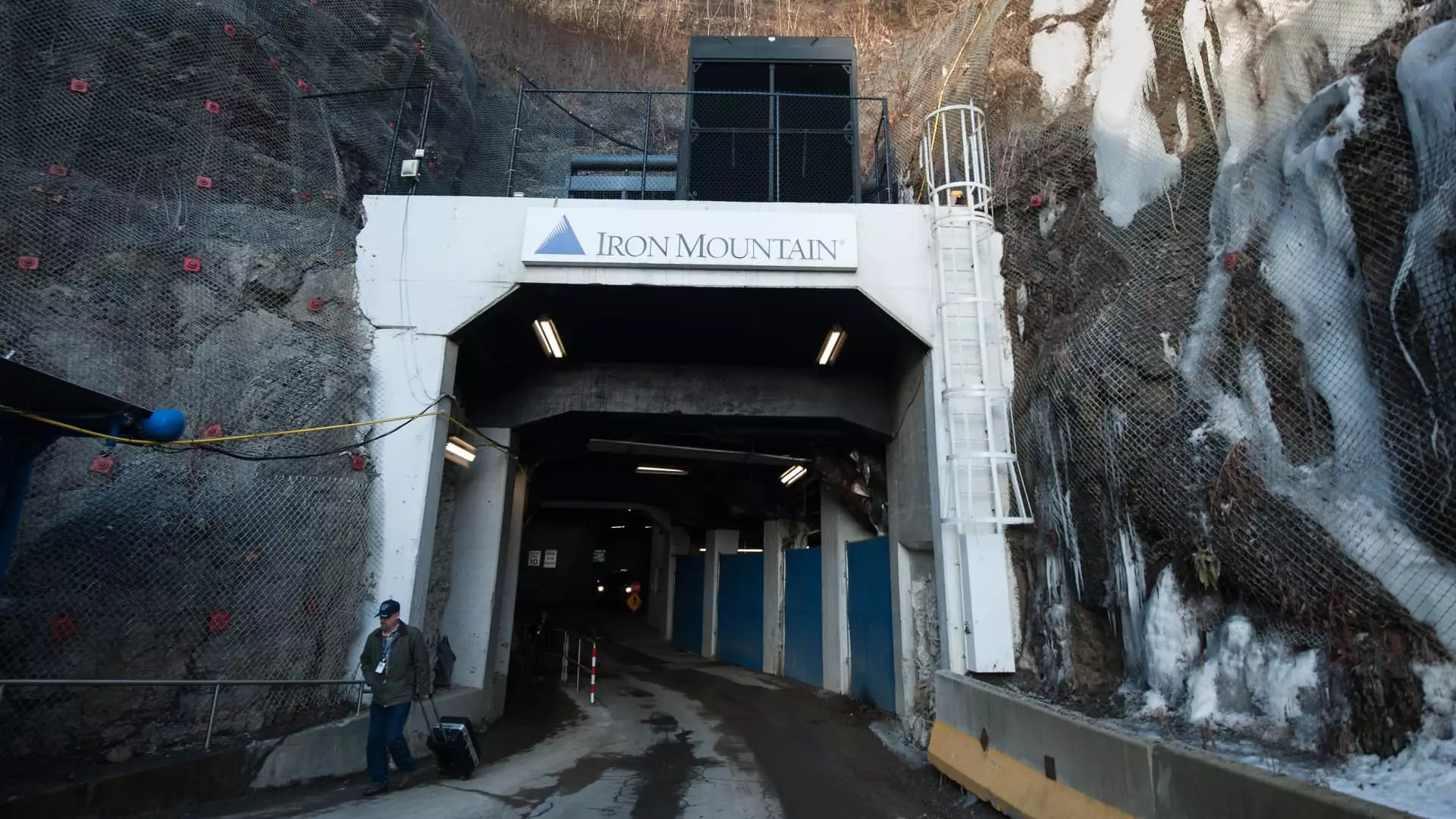In a high-profile meeting at the Oval Office, tech mogul and visionary Elon Musk brought a fresh perspective to the perennial issue of government inefficiency. As he stood alongside President Donald Trump, Musk took aim at an intricate and somewhat archaic facet of federal operations: the storage and processing of retirement paperwork, specifically at a limestone mine operated by Iron Mountain. This striking commentary raises critical questions not only about bureaucratic processes but also about the broader implications for corporations contracting with the government.
Elon Musk highlighted a situation that seemed almost like a time capsule from the 1950s. He referred to a limestone mine that functions as a storage facility for federal retirement documents. Musk’s sleight of rhetoric, referring to the mine’s elevator speed as a bottleneck in the retirement application process, served to underscore the absurdity and inefficiency he sees within federal operations. His statements drew attention to a mine that operates over 200 feet underground and has become a focal point for illustrating government waste. Musk’s unrestrained criticism, albeit anecdotal, mirrored a growing discontent with governmental inefficiencies that have been long-standing concerns of many citizens and policymakers alike.
The immediate aftermath of Musk’s critique resonated through the stock market as shares of Iron Mountain dropped sharply, reflecting investor anxiety over potential repercussions on government contracts. As rumors of scrutiny intensified, Iron Mountain faced a 10% dip in their stock prices in the wake of Musk’s comments. Investors appeared concerned that any push to streamline government services would put Iron Mountain’s existing agreements in jeopardy, causing a ripple effect throughout the company’s financial standing. With a significant portion of their revenue sourced from their government contracts, the abrupt market reaction was not surprising, raising alarms about the longevity of their business model.
Iron Mountain CEO Bill Meaney sought to reframe the narrative during a subsequent earnings call, suggesting that Musk’s initiative—coined DOGE for the Department of Government Efficiency—could represent a growth opportunity. He noted the company’s alignment with federal efforts to modernize and digitize its services. This would not only improve the efficiency of record-keeping but might also enhance Iron Mountain’s business portfolio beyond mere document storage, positioning them favorably within the shifting landscape of government contracting. Meaney’s assertion that Iron Mountain earned $130 million through its data center and digitization sectors compared to the modest $10 million from physical documentation reveals the potential avenues for growth and transformation.
Musk’s remarks opened a broader conversation about the future of government contracts—especially those tied to inefficiencies and outdated practices. Understanding the intricacies of these contracts is crucial for firms looking to navigate the complex waters of federal business. With the spotlight on inefficiency, those companies that provide services to the government may need to adapt quickly, innovating not just their technology but their overall approach to meet rising expectations for efficiency and transparency.
Despite the negative market reaction, equity analysts like Eric Luebchow from Wells Fargo viewed the sell-off as an overreaction. He noted that Iron Mountain’s diverse client base lessens the impact of losing any single contract, including those with the federal government. Moreover, termination fees could cushion the effects of contract losses, further alleviating fears for investors.
Musk’s comments in the Oval Office serve as both a critique and a clarion call for change within government practices. While they disturbed investor confidence temporarily, they also set in motion a potentially transformative dialogue regarding operational efficiency in the public sector. As companies like Iron Mountain navigate this changing landscape, the challenge will be to not only respond to current critiques but to also proactively embrace innovations that align with new government directives for efficiency. The intersection of technology, business, and government could yield fruitful avenues for improving public service delivery, but only if all stakeholders are willing to engage constructively in the reform process.

